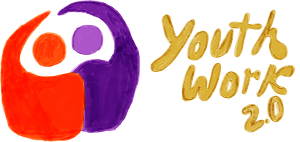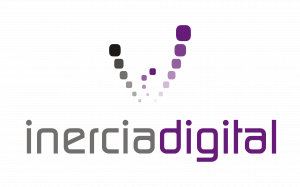As part of the Youth Work 2.0 project we have created an Open Education Resource (OER) to teach youth workers how to correctly plan, implement, monitor and evaluate a learning activity with young people with and without fewer opportunities jointly.
The platform will help you, the youth worker, understand the relationship between social inclusion and youth work, to develop, plan, implement, monitor and evaluate non-formal activities to foster the development of social, civic, intercultural competences among youths with and without fewer opportunities jointly; and how to engage in non-formal activities youth with and without fewer opportunities.
Target group: youth workers, youth leaders, youth supervisors.
Other organisations and youth workers, VET and education institutions can use it this platform to ensure social inclusion and to create the design of an activity that jointly involves youth with and without fewer opportunities, to raise tolerance and fight against discrimination
The e-Learning platform is an open education resource developed based on Multimedia Learning principles, and will contain:
The platform will help you, the youth worker, understand the relationship between social inclusion and youth work, to develop, plan, implement, monitor and evaluate non-formal activities to foster the development of social, civic, intercultural competences among youths with and without fewer opportunities jointly; and how to engage in non-formal activities youth with and without fewer opportunities.
Target group: youth workers, youth leaders, youth supervisors.
Other organisations and youth workers, VET and education institutions can use it this platform to ensure social inclusion and to create the design of an activity that jointly involves youth with and without fewer opportunities, to raise tolerance and fight against discrimination
The e-Learning platform is an open education resource developed based on Multimedia Learning principles, and will contain:
- An open online course with 10 modules, in English with subtitles in Romanian and Spanish. The online course has the following lessons:
1.Youth work and its impact – Ethics, role, well-being
2.Social inclusion and youth work – Facilitate non-formal education activities with youths with and without fewer opportunities jointly
3.Foster the development of social and civic competences among youths with and without fewer opportunities jointly
4. Preparing the non-formal activity – needs assessment, establish the learning objectives
5.Choosing the methods: learning, learning outcomes and learning styles
6.Characteristics of non-formal activities with intercultural dimension – culture, identity, intercultural learning and youth work
7.Non-formal activities
8.How to form the team
9.Non-formal activities evaluation and monitoring: Objectives, process, results and in impact
10.Preparing the participants for transfer and multiplying
2.Social inclusion and youth work – Facilitate non-formal education activities with youths with and without fewer opportunities jointly
3.Foster the development of social and civic competences among youths with and without fewer opportunities jointly
4. Preparing the non-formal activity – needs assessment, establish the learning objectives
5.Choosing the methods: learning, learning outcomes and learning styles
6.Characteristics of non-formal activities with intercultural dimension – culture, identity, intercultural learning and youth work
7.Non-formal activities
8.How to form the team
9.Non-formal activities evaluation and monitoring: Objectives, process, results and in impact
10.Preparing the participants for transfer and multiplying
- A Toolkit that provides a minimum quality standard to develop non-formal learning activities.
There are 14 templates that can be downloaded to use in order to plan, design, evaluate, monitor, ensure impact, follow up and ensure the sustainability of the non-formal activities with youth with and without fewer opportunities jointly.
The toolkit templates include:
1. Youth workers role, identify values and ways for well being
2. Social inclusion and the connections between social inclusion and youth work
3. How to facilitate non-formal education activities with youth with fewer opportunities jointly, identifying the target group, select the participants
4. Steps to take to foster the development of social and civic competences in activities that involve youths with and without fewer opportunities jointly
5. Need assessment sheet, objectives development sheet
6. Plan the expected results and establish the learning outcomes
7. How to introduce the intercultural dimension in the non-formal activities
8. What to do and what to plan before, during and after the activity in terms of actions
9. The program design of the non-formal activity, the frame and program flow, session design
10. Tools to plan the activity in terms of time management
11. How to choose the methods – differences between the methods and methodology aims, target group, time, space, experience, preferences, individuals, topic
12. Tools to monitor and evaluate: questionnaire, observation sheets, feedback, sessions, daily evaluation, tailored, qualitative and quantitative evaluation
13. Develop the non-formal activity report
14. Instruments and tools to ensure transfer and multiplyingOn the Results tab you will also find a brochure with 21 new non-formal methods, a board game and an E-book about how to reach out to marginalised young people.
The toolkit templates include:
1. Youth workers role, identify values and ways for well being
2. Social inclusion and the connections between social inclusion and youth work
3. How to facilitate non-formal education activities with youth with fewer opportunities jointly, identifying the target group, select the participants
4. Steps to take to foster the development of social and civic competences in activities that involve youths with and without fewer opportunities jointly
5. Need assessment sheet, objectives development sheet
6. Plan the expected results and establish the learning outcomes
7. How to introduce the intercultural dimension in the non-formal activities
8. What to do and what to plan before, during and after the activity in terms of actions
9. The program design of the non-formal activity, the frame and program flow, session design
10. Tools to plan the activity in terms of time management
11. How to choose the methods – differences between the methods and methodology aims, target group, time, space, experience, preferences, individuals, topic
12. Tools to monitor and evaluate: questionnaire, observation sheets, feedback, sessions, daily evaluation, tailored, qualitative and quantitative evaluation
13. Develop the non-formal activity report
14. Instruments and tools to ensure transfer and multiplyingOn the Results tab you will also find a brochure with 21 new non-formal methods, a board game and an E-book about how to reach out to marginalised young people.




